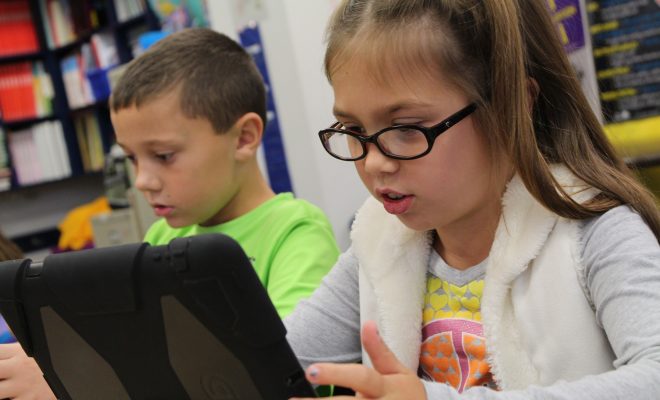How to revolutionize STEM education amongst millennials via social media channels

**The Edvocate is pleased to publish guest posts as way to fuel important conversations surrounding P-20 education in America. The opinions contained within guest posts are those of the authors and do not necessarily reflect the official opinion of The Edvocate or Dr. Matthew Lynch.**
A guest column by Dahlton Grover
Millennials grew up in a unique era of transition as the Internet began to flourish and social networking was born. They were the first generation to have seemingly unlimited resources to learn from, which altered the way they learn, think about and feel about knowledge. The result is a world of visual learners craving digital content. With this unique disposition, millennials don’t learn the same way baby boomers did, so our education techniques must grow and change accordingly. Educators have the opportunity to utilize a plethora of new technologies in order to increase student engagement, and encourage what is known as a participatory culture. For STEM education, this type of culture optimizes results.
When it comes to STEM education, people are starting to really take notice. STEM certainly had merit 20 years ago when the term first came into use, but recently it has taken seed and grown enormously. Why now? Social media is certainly one force driving awareness. Some experts believe the exorbitant use of social media has effectively created a culture of instant gratification and lessened learning, but is this really accurate? As the millennial generation grew up with social media in a fast paced information-age, they also helped to transform it into something more useful. The first social sites such as MySpace were out of style as soon as millennials had their fun and were ready to move on. Next on the landscape was Facebook, which statistics now indicate is also on the decline in terms of millennial usage. So what have millennials moved onto? Fast-paced, information-rich sites that incorporate bite-sized pieces of data coupled with visual stimulation in the form of either photo or video.
Instagram and Tumblr are exploding because of the seamless flow of information they have created, which also satisfies the craving for visual stimulation amongst millennials. How are these new sites revolutionizing the way people see STEM? Not only do they easily connect people with like-minds and interests, but it also allows the world to see innovation in action. STEM-based hash tags like #EdChat, #STEMEd and #Dronestagram are proof that social sites are creating a world of participatory culture by showcasing STEM in its raw, honest form. Sites like Reddit are encouraging this on an even grander scale.
Reddit is a community news forum. Unlike Instagram and Tumblr, Reddit does not allow images or visuals in the posting system, but it still delivers a continuous stream of information on a variety of topics. With Reddit, the world is getting smaller, meaning getting information and finding a community with similar interests is becoming increasingly easier. For example, Reddit hosts what are known as AMAs or Ask Me Anything forums. Many of the hosts in these forums are STEM professionals ranging from NASA astronauts to geologists. Students of all ages have the opportunity to question them about the work they are doing and their profession in general. This type of forum is exactly what STEM students need to get them excited about learning, and encourage STEM dialogue to become a part of their daily lives. It has been proven that people gain the majority of their science knowledge outside of formal classroom, and social sites like Reddit are helping to encourage this more and more.
Learning outside the traditional classroom is also driven by the large amount of free, open-source software and hardware available which generate active, vibrant social communities. For example, Arduino is a computer programming language which is open-source and enables anyone to learn to code and control devices from simple robots to wearable technology. Instead of established companies controlling the markets, the social nature of the Internet has created an environment of learning that encourages users to use, create, invent and improve upon what is already available. Participation in community forums about such open-source software and hardware empowers students to learn and develop confidence in their skills, through relevant, real-world projects. Social sites are used to share new discoveries and new skills around open-source software and hardware used in STEM fields.
So what does all this mean for STEM educators around the world? How can they utilize this information within their unique teaching methodologies? The answer to this is not black and white. Creativity is needed and student input is extremely helpful. If students have a lot of fun learning through organic Reddit feeds, researching STEM feeds could be a potential project. If students are Instagram-lovers, encourage them to find some of the most popular STEM-based accounts and put together a compilation of their top posts and explain the STEM content each illustrates. Or, if students want to learn computer coding, open-source software can be easily used in classrooms to encourage student-driven learning. Whatever the project may be, social media and learning go together hand-in-hand. Social networking is so much more now than where it began, and has generated a world of self-taught, lifelong learners. Even more important is that many of these sites encourage dialogue, which reinforces the idea of a participatory culture and fosters confidence in student’s abilities. Social media can be used in so many different ways within the classroom, and often inspires students to continue actively seeking information outside of school, which many STEM educators work to achieve.
_________________
Dahlton Grover is the resident Curriculum and Content Coordinator for PCS Edventures, and is in charge of overseeing final products, marketing collateral, photography and videography. Additionally, she works on Investor Relations, runs monthly webinars, served as a project manager for the Saudi Arabia international project and occasionally spends time teaching students in the Lab. Ms. Grover received her B.A. in Global Studies from the University of California, Santa Barbara in 2013. Following her education at UCSB she pursued a 200 hour Yoga Alliance certified yoga teacher training program in San Luis Obispo, CA, after which she returned home to Boise, ID. Ms. Grover has extensive experience in writing, sales and marketing and her Global Studies background fuels her passion to change the face of education worldwide. In addition, Ms. Grover was an original PCS Edventures student, as she attended their preschool at a young age and grew up around their curriculum and technology for many years; because of her experience Dahlton brings a unique student perspective to the production of developing new curriculum.





